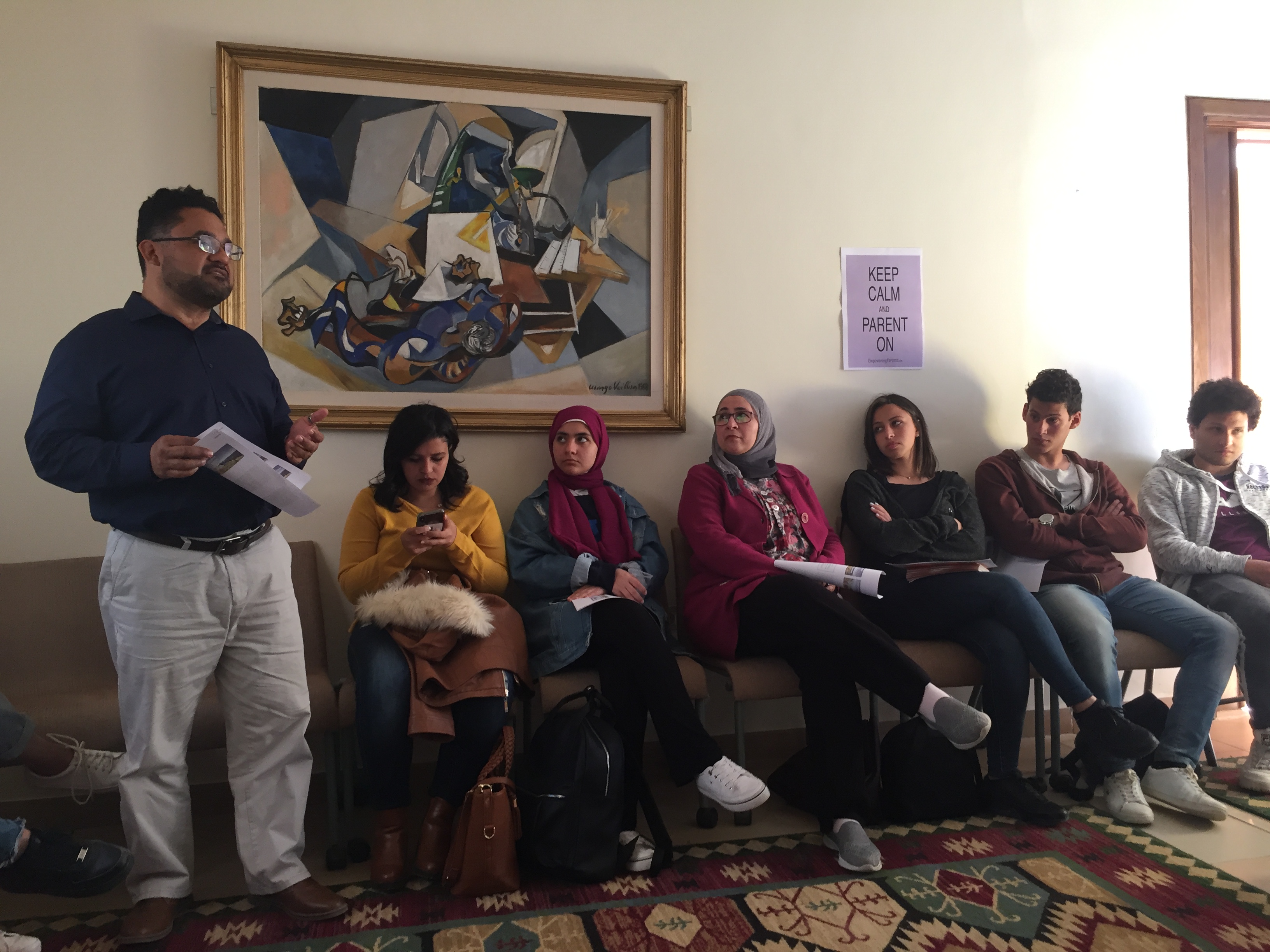Library team reiterates longstanding food and beverage policy
Edited by: Malak Elkaddadi
The AUC library team has started enforcing their longstanding food and beverage policy on the library premises after a TikTok video showing students eating went viral last Fall semester, leaving students outraged and confused.
In December 2023, an AUCian posted a TikTok video featuring several students bringing various Egyptian meals into the library over several days. Dishes such as stuffed grape leaves and pies were included, which are not compliant with foods permitted by the policy.
According to AUC’s official website, “consuming smelly or messy food and drinks in any library space” is prohibited. Single-serving, dry snacks, and covered beverages are permitted.
The library administration filed a conduct case against the offending students for not following the library rules and showcasing the breach of policy online.
The Caravan reached out to the students featured in the now-deleted TikTok video, but they did not wish to comment.
“We expect users to be considerate of others working nearby. Given that some individuals are particularly sensitive to noise and odors, it’s essential for everyone to be mindful of the types of snacks they bring to the library and, therefore, [we] do not allow smelly or messy food. Our approach isn’t targeted at one specific group; rather, we aim to accommodate all users and foster inclusivity,” said Lamia Eid, interim dean of libraries.
Eid expressed that every year, AUC students protest ‘new’ food and beverage bans in the library despite the fact that this policy has always existed.
“When we moved to the new campus over a decade ago, it was still underdeveloped, with limited food outlets. Consequently, we permitted food and drinks throughout the building except for the Rare Books Library — unlike the old Tahrir campus where such practices were strictly prohibited,” said Eid.
When more food outlets opened up on campus, the library policy changed only allowing water, fruits, covered drinks, and non-smelly or crunchy food.
Library policies are created with the purpose of keeping the library clean and creating a calm study environment. One of the team’s priorities is protecting AUC’s highly treasured Rare Books and Special Collections Library (RBSCL).
“Food leftovers can attract rodents, rats, and roaches, posing a threat to our unique and valuable Rare Books Library. Infestations would significantly damage the library assets and collections,” explained Eid.
When developing such policies, the library team referenced global library policies and found that prohibiting food and beverages is common practice.
“We evaluate the needs of our diverse community, taking into account various user categories, and conduct reviews of best practices within library associations and renowned international universities. The restriction on hot meals and messy, odorous foods in the AUC library reflects a broader trend observed across libraries, not just within our institution,” added Eid.
Eid argued that the policy has always been clear and that the security team should not have to administrate bag checks to enforce it.
“We anticipate effective collaboration with students. Unlike in a high school setting where daily instructions prevail, our approach regards students as responsible adults. We trust that they adhere to the guidelines to foster a conducive student environment for everyone,” said Eid.
Dina Hussein, director of Libraries and Learning Technologies (LALT) administration and operations, also expressed the struggles that food leftovers cause for the cleaning staff.
“It takes a lot of substantial effort and work to keep the library building clean. A lot of students depart leaving food and drinks leftovers on the tables, which creates additional work for both the housekeeping and the building teams to follow up to ensure cleanliness and sanitation measures are met before closure,” she said.
Hussein recalled an incident where, after a student left his food in the library for over an hour, the cleaning staff discarded it. The student came back and complained about his food being removed.
On the other hand, some students felt it was unfair that their colleagues who posted the viral TikTok faced a conduct case as they believed the library had not made the policy clear enough.
“Clearly, a case like this shows that the policy is not imposed well enough for students to be aware of it,” said Amr Tamer, a senior majoring in Theater.
Ahmed Akef, a senior majoring in Mechanical Engineering, thought that the policy had only been initiated this semester simply due to the video from December.
“I don’t think that because of someone’s bad actions, food should be banned because it is like collective punishment,” said Akef.
Other students felt like the policy was self-explanatory.
“Why would messy food be allowed in a place where many computers, books, and precious equipment are being used? I think it’s common sense,” said Adam Gad, a junior majoring in Psychology.


